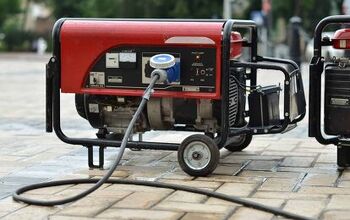Are Oil Heaters Safe To Leave On Overnight? (Find Out Now!)

Many people debate over which one is more dangerous, oil or electric heaters. Everyone has said a heater should never be left unattended in the room or home. This leaves us with the question, are oil heaters safe to leave on all night?
Due to the latest technology, it is safe to leave most oil heaters on overnight. However, always check with the manufacturer of your heater and follow their safety recommendations as they know what’s best. Keep the heater away from flammable material, and make sure you allow it to rest when possible.
A fire can start at any time, but with safety, the chances are lessened. Older models do not have most of the new technology but are still safe to use day or night. If you always keep the three-foot rule and do not knock the heater over, you will be fine.
Is Overnight Operation Of Oil Heaters Safe?
Although manufacturers advise not to run heaters overnight, oil heaters are the safest. Always remember to keep safety first in your mind. Oil heaters do not release poisonous fumes unless leaking.
The thermostat is adjusted for room temperature to remain comfortable. As long as no object is placed on or near the heater, oil heaters are relatively safe. Even so, all heaters need to be monitored and turned off when leaving the area.
Safety Precautions
This should always be the first and foremost for everyone. We cannot stress enough to follow the owner’s manual with valuable information. So many people have lost their lives in house fires due to not following these instructions.
- Place the heater away from any materials that can catch fire. (Examples: curtains, fuels that can ignite, any bedding materials, etc.)
- Do not use extension cords or plug-in strips, as these can get overheated, causing fires.
- Do not place electrical power cords under any coverings like rugs or carpets.
- Oil heaters are not for use in wet areas such as bathrooms, laundry rooms.
- Be sure the heater has a tip-over shut-off switch.
- Check to make sure the heater passes inspection checks periodically.
Energy Usage And Conservation
Think of the amount of energy used to operate the heater. It takes more energy to heat any area than to cool it down. Therefore, if you are energy conscious and try to conserve and control electric bills, use the thermostat accordingly.
This will either keep the unit running constantly
or intermittently (on and off). It may take a few tries to get it set correctly, but you will notice a difference in the bill.
Staying Warm On Cold Days
The main reason for having a heater is to stay warm. How the heater is run makes the difference in comfort. The only problem is, not everyone’s idea of comfort in the heat is the same.
This is the culmination of the list thus far. How should the heater be run to keep you warm on frigid days and nights? The World Health Organization suggests these minimum temperatures.
- 16 °C (61 °F) for those with respiratory or allergy problems
- 18 °C (64 °F) for normal, healthy adults (appropriately dressed)
- 20 °C (68 °F) temperature for very young, old, and disabled
Inspections
There are inspections for the safe operation of oil heaters. The unit purchased should have at least one of the inspections listed below.
This should give peace of mind to the purchaser that the system is operating within safety standards as follows. These are the certifications to look for on the packages or stickers on the heater itself.
- UL
- ETL
- SAA
- CE
- CSA
- NOM
Top Three Heaters Safe to Use at Night
Below are three of the top listed safest heaters to run while you are dreaming at night.
All three units have these modern-day safety options in common. Perhaps it is these features that make families feel safer.
- They are protected from overheating.
- Tip-over protection stops the unit from running if knocked over.
- Thermostat to control temperature.
- A timer to automatically shut off the heater at specified times.
How Do Oil Heaters Work?
An oil heater is filled with diathermic oil that is heated by an electric element in its base. The oil is in an enclosed area and needs no refill. Since being in a sealed area, no carbon monoxide or poisonous gases are emitted.
This increases safety for all concerned individuals. The oil is heated slowly and has a very high boiling point, about 350 degrees C. As the heater is running, oil is moved through the coils and heats the air in the room.
It naturally causes the room to heat up. The thermostat is used to measure the room temperature and keeps the temperature at a constant level. No forced air is used in this process.
As the heater warms, a clicking sound will take place.
Pros of Running Oil Heaters
Listed below are the pros to owning and running oil heaters.
- Oil has a higher boiling point than water; therefore, the oil will hold heat for a longer period.
- They store heat and keep internal pressures stable.
- They heat slowly and do not increase pressure on the metal case.
- Oil heaters have a metal case that encloses oil. This keeps all surfaces cool to the touch.
- Most oil heaters have major security features, allowing them to remain on all night. This is ideal for staying comfortable through the night.
- The heaters do not blow fuses.
Cons of Running Oil Heaters
Below are listed the downsides to owning or running an oil heater.
- One major con of an oil heater is the time needed to warm up an area. Most are not designed to heat large rooms.
- Another con is the heaters are heavier than electric heaters.
- An oil heater left on at night can cause dry skin and a dry throat.
The Normal Operation Of A Heater
When the unit is turned off, the heat retained by the oil will continue to be released through the coils. This also causes a much slower cooling of the oil, which emits more heat for longer periods. It adds to the efficiency of the unit and conserves energy.
If the temperature stays between 750-1000 F, the heater should last around 16-20 years. It also varies according to surrounding conditions. If the temperature inside the coils exceeds these temperatures, it can do damage to the unit.
The result can cause the coils to break down, shortening the life of the heater. It is only an estimate of time.
Other factors which can damage heater units are as follows.
- Power surges
- Water
Determine The Heater’s Size For Your Home
These should help to determine what size heater is needed to warm the area involved. (US markets)
- Measure the length, width, and height of the room to determine the area.
- Calculate the wattage that the room may need. You can estimate around 10 W per square foot. Multiply the square footage by 10W to get this number.
- Determine the number of BTUs needed for the area to be heated by converting wattage into BTUs. One watt is equal to 3.41 BTUs, and this number will reveal what size heater is needed in BTUs. The higher the BTUs, the more the output and the larger the unit, increasing electrical usage and creating higher bills.
- Do not forget to add other factors into the equation. The number of windows, poor insulation, and high ceiling will affect the amount of heat retained/needed.
Pricing and Availability Of Oil Heates
Prices vary for oil heaters. They range anywhere from about $49 to above $150 on average. Kerosene or oil is found for sale with the heaters.
Online orders may differ slightly in prices. These types of heaters are widely available for purchase. They can be purchased at just about any department store or online.
Amazon and any online department store sell the oil heaters as well as the space heaters. The choice is up to the buyer, and there are many styles and sizes to choose.
Technology Has Made Things Better
Technology has progressed to the point of the “smart” era. Thermostats have progressed over the last several years, making oil heaters safer and more efficient. If guidelines are followed, the risk of fires claiming both property and lives is greatly diminished.
With these advances, the construction of the oil heater makes them even safer. Since no carbon monoxide or any gases are emitted, the unit becomes safer for humans and animals. As long as there is no oil leak, the containment of oil keeps outer surfaces cool.
Read Warning Labels because they are written to guide decisions in keeping your families well cared for and safe. Weigh the options, choose the best system for you, and be safe and warm in your homes.
Related Guides

We are a team of passionate homeowners, home improvement pros, and DIY enthusiasts who enjoy sharing home improvement, housekeeping, decorating, and more with other homeowners! Whether you're looking for a step-by-step guide on fixing an appliance or the cost of installing a fence, we've here to help.
More by Upgraded Home Team










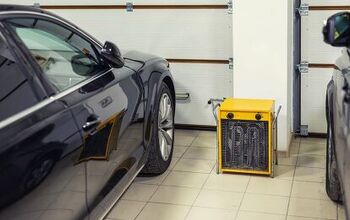
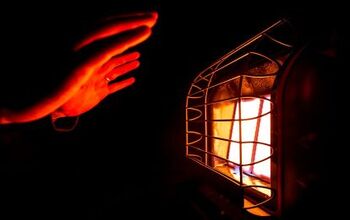




![Cost To Drill A Well [Pricing Per Foot & Cost By State]](https://cdn-fastly.upgradedhome.com/media/2023/07/31/9074980/cost-to-drill-a-well-pricing-per-foot-cost-by-state.jpg?size=350x220)



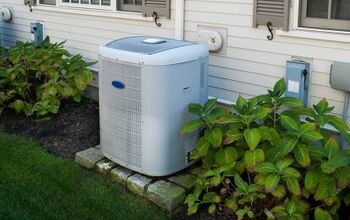
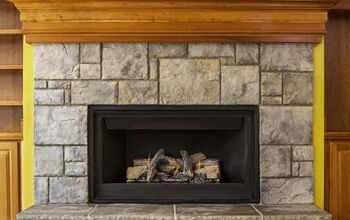



![Standard Dining Room Table Dimensions [for 4, 6, 8, 10 and 12 People]](https://cdn-fastly.upgradedhome.com/media/2023/07/31/9074335/standard-dining-room-table-dimensions-for-4-6-8-10-and-12-people.jpg?size=350x220)

